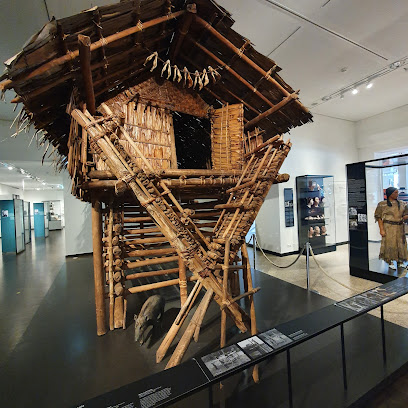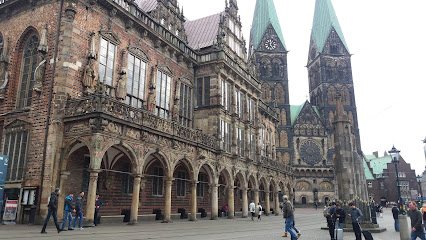
Altstadt Bremen: A Journey Through Time and Culture
Altstadt Bremen, the historic heart of Bremen, Germany, is a charming blend of medieval architecture, vibrant culture, and rich history. As you stroll through the cobblestone streets, you'll be transported back in time, with stunning landmarks like the UNESCO World Heritage-listed Town Hall and the majestic Roland Statue standing proudly in the town square. The gothic St. Peter's Cathedral, with its twin spires piercing the sky, is a must-see for history enthusiasts and architecture lovers alike. The Schnoor Quarter, Bremen's oldest district, is a picturesque maze of narrow lanes lined with half-timbered houses that date back to the 15th and 16th centuries. This area is perfect for leisurely exploration, with numerous artisanal shops, cozy cafes, and traditional restaurants offering local delicacies. For a taste of Bremen's maritime heritage, head to Schlachte Embankment along the Weser River, where you can enjoy riverfront dining, boat tours, and a lively atmosphere. Altstadt also hosts a variety of cultural attractions, including the Bremen Kunsthalle, a renowned art museum, and the Universum Science Center, which offers interactive exhibits for visitors of all ages. Seasonal markets, like the famous Bremen Christmas Market, add a festive flair to the neighbourhood, making it a year-round destination for tourists seeking a blend of history, culture, and modern amenities.
Local tips in Altstadt
- Visit the Town Hall and Roland Statue early in the morning to avoid crowds.
- Explore the Schnoor Quarter on foot for the best experience of its narrow lanes and historic buildings.
- Try traditional Bremen dishes like Labskaus and Knipp at local restaurants.
- Check out the seasonal markets, especially the Bremen Christmas Market, for unique gifts and festive treats.
- Take a leisurely boat tour along the Weser River for stunning views of the city from the water.
Altstadt Bremen: A Journey Through Time and Culture
Altstadt Bremen, the historic heart of Bremen, Germany, is a charming blend of medieval architecture, vibrant culture, and rich history. As you stroll through the cobblestone streets, you'll be transported back in time, with stunning landmarks like the UNESCO World Heritage-listed Town Hall and the majestic Roland Statue standing proudly in the town square. The gothic St. Peter's Cathedral, with its twin spires piercing the sky, is a must-see for history enthusiasts and architecture lovers alike. The Schnoor Quarter, Bremen's oldest district, is a picturesque maze of narrow lanes lined with half-timbered houses that date back to the 15th and 16th centuries. This area is perfect for leisurely exploration, with numerous artisanal shops, cozy cafes, and traditional restaurants offering local delicacies. For a taste of Bremen's maritime heritage, head to Schlachte Embankment along the Weser River, where you can enjoy riverfront dining, boat tours, and a lively atmosphere. Altstadt also hosts a variety of cultural attractions, including the Bremen Kunsthalle, a renowned art museum, and the Universum Science Center, which offers interactive exhibits for visitors of all ages. Seasonal markets, like the famous Bremen Christmas Market, add a festive flair to the neighbourhood, making it a year-round destination for tourists seeking a blend of history, culture, and modern amenities.
Iconic landmarks you can’t miss
Schnoor
Discover Bremen's enchanting Schnoor district, a medieval maze of cobblestone streets, half-timbered houses, artisan shops, and cozy cafes, offering a unique journey back in time.
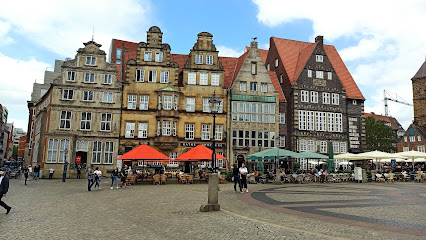
Town Musicians of Bremen
Visit the iconic bronze statue of the Town Musicians of Bremen, a timeless symbol of unity and hope from the Brothers Grimm fairy tale, located in the heart of Bremen's historic city center.
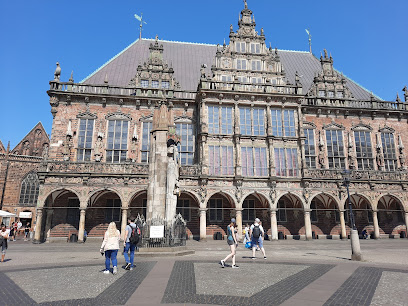
Bremen Market Square
Discover Bremen Market Square, a UNESCO World Heritage site and the historical heart of Bremen, Germany, offering stunning architecture and vibrant cultural experiences.
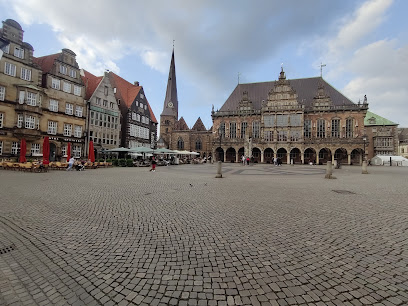
Bremen Roland
Witness the Bremen Roland, a UNESCO World Heritage site, symbolizing freedom and justice in the heart of Bremen's historic Marktplatz, a testament to the city's Hanseatic legacy.
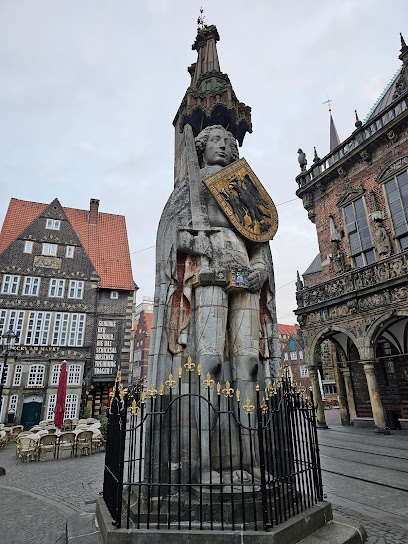
Glockenspiel House
Experience the enchanting melodies and historical charm of Bremen's Glockenspiel House, a Neo-Renaissance masterpiece with a captivating carillon performance in the heart of Böttcherstraße.
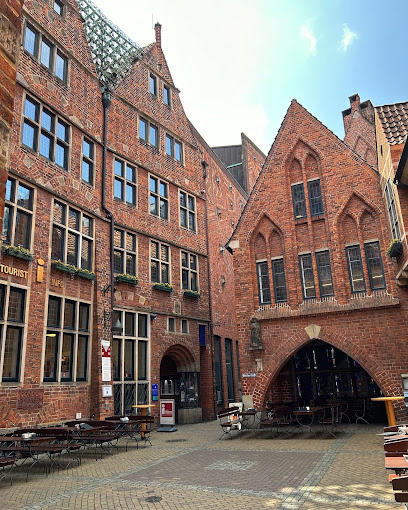
Bismarck monument
Discover the Bismarck Monument in Bremen's Domshof: a bronze equestrian statue commemorating Germany's Iron Chancellor and a pivotal figure in European history.
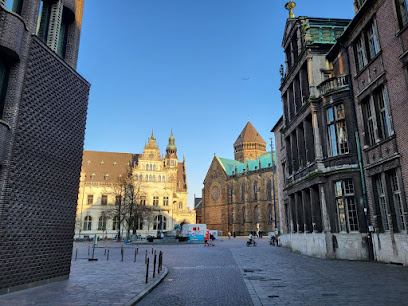
Bleikeller
Discover Bremen's eerie past in the Bleikeller, a subterranean crypt beneath St. Peter's Cathedral, where naturally mummified remains offer a chilling glimpse into centuries past and a unique historical experience.
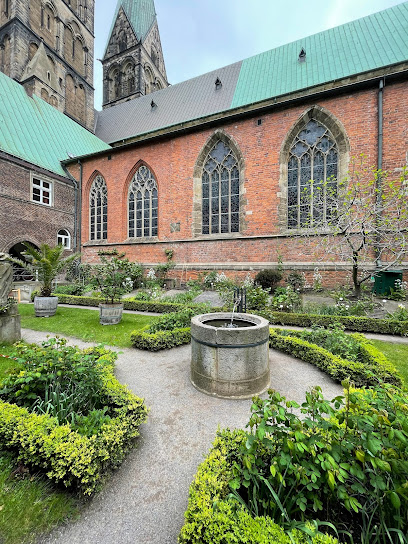
Domshof
Explore Domshof in Bremen, a historic square where religious roots meet architectural grandeur, offering a glimpse into the city's vibrant past and present.
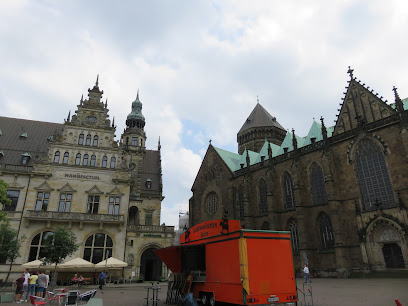
Tower Blowers Fountain
Discover Bremen's musical heritage at the Tower Blowers Fountain, a captivating bronze sculpture beside the iconic Cathedral, celebrating centuries of tower musicians.
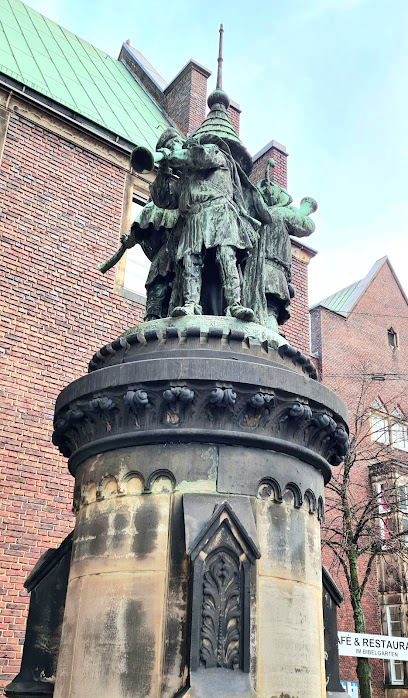
Stavendamm
Discover Stavendamm in Bremen's Schnoor: A historic street with charming architecture, offering a tranquil escape and a glimpse into the city's medieval past.
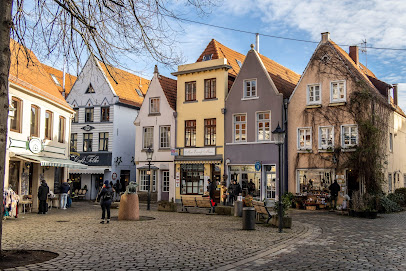
Unmissable attractions to see
Essential places to dine
Bremen Ratskeller
Experience authentic German cuisine in a historic setting at Bremen Ratskeller - where tradition meets taste in every bite.
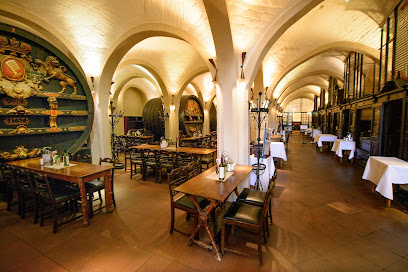
Muchos más
Savor authentic Spanish cuisine at Muchos Más, a lively restaurant and bar in Bremen offering delicious tapas and refreshing drinks.
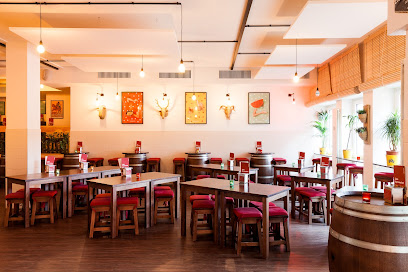
Plaka Restaurant
Discover authentic Greek cuisine at Plaka Restaurant in Bremen, where every meal is a delightful journey through Mediterranean flavors.
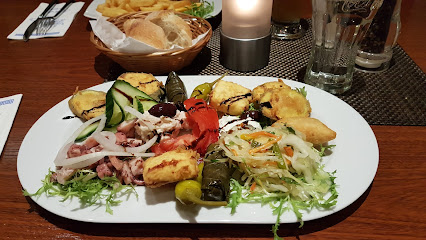
Beck's in'n Snoor
Discover the rich flavors of Germany at Beck's in'n Snoor - a hidden gem in Bremen's historic Schnoor district offering delightful traditional cuisine.
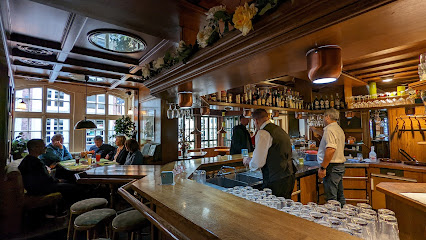
John Benton Restaurant
Experience exquisite steaks and authentic German dishes at John Benton Restaurant in Bremen's lively center.
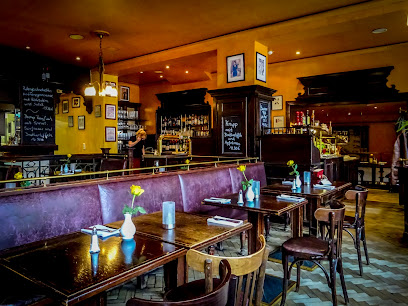
Osteria
Discover authentic Italian cuisine at Osteria in Bremen's picturesque Schlachte promenade, where every meal is a delightful experience.
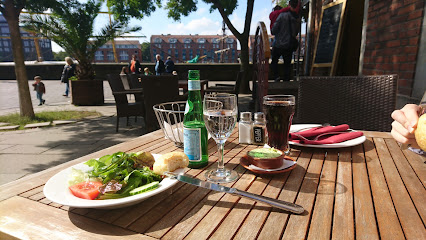
September
Experience exquisite dining at September Restaurant in Bremen - where modern cuisine meets local flavors in an inviting atmosphere.
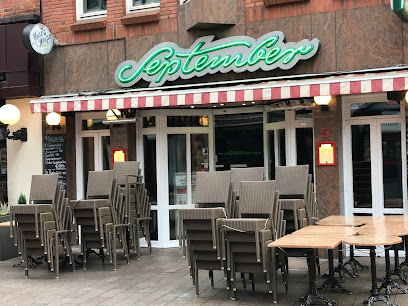
Kleiner Ratskeller
Discover authentic German flavors at Kleiner Ratskeller, where traditional dishes meet warm hospitality in the heart of Bremen.
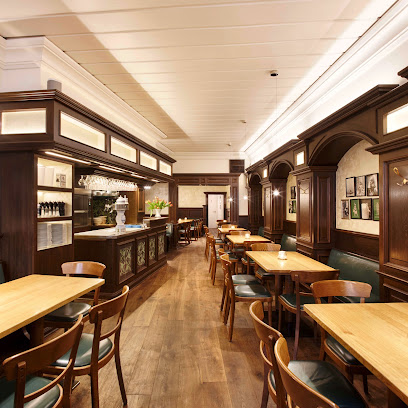
La Bottega
Experience authentic Italian cuisine at La Bottega in Bremen – where every meal is a celebration of flavors.
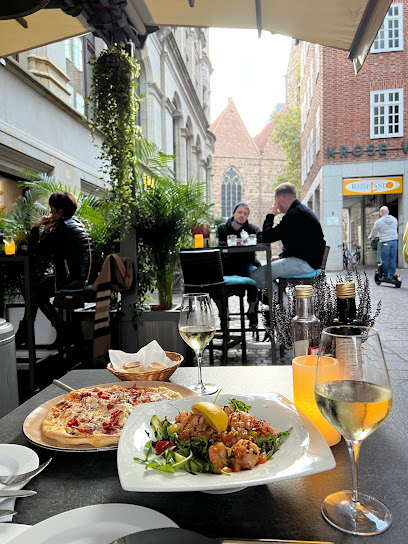
Gallo Nero
Discover authentic Italian cuisine at Gallo Nero in Bremen - where tradition meets flavor in every dish.
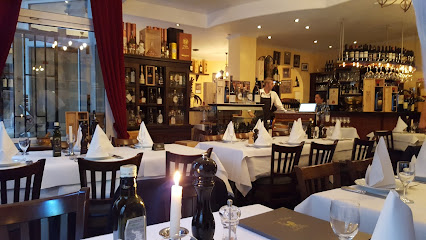
Markets, malls and hidden boutiques
Karstadt Bremen
Discover the charm of Karstadt Bremen, a premier department store offering diverse shopping options and a delightful café in the heart of the city.
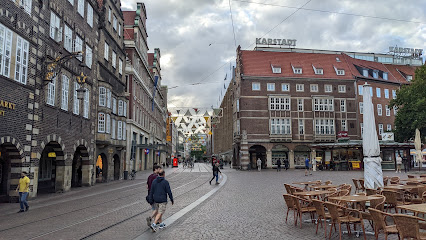
Manufactum Warenhaus
Explore Manufactum Warenhaus in Bremen for unique gifts, sustainable fashion, and gourmet delights in a charming shopping environment.
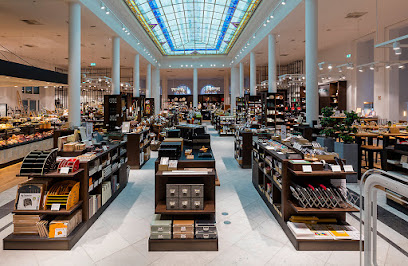
NEW YORKER
Discover the vibrant NEW YORKER clothing store in Bremen, Germany, offering trendy fashion for all ages and stylish accessories to elevate your wardrobe.
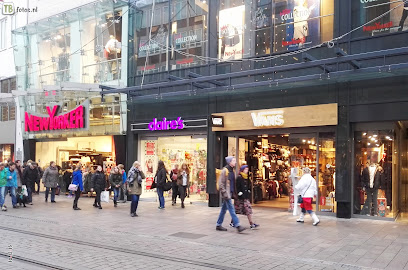
Stadtwaage
Discover Bremen's vibrant shopping scene at Stadtwaage, where local craftsmanship meets contemporary style in a delightful department store.
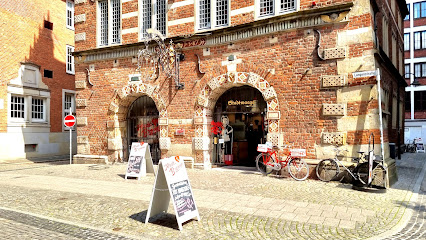
Sieben-Faulen-Laden
Explore the charm of Bremen through unique souvenirs and handcrafted treasures at Sieben-Faulen-Laden.
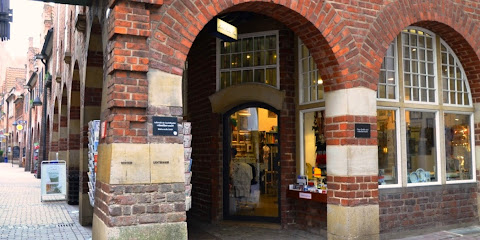
Magellan Store
Explore Bremen's culinary delights at Magellan Store - the premier gift basket store and deli for unique local specialties.
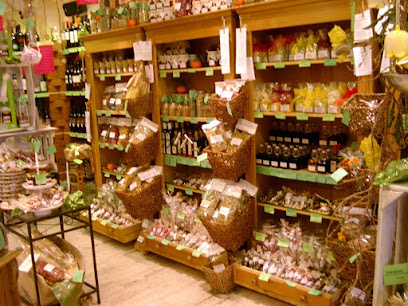
King Kong Superstore
Discover stylish clothing and unique fashion pieces at King Kong Superstore in Bremen, where vibrant shopping meets local design.
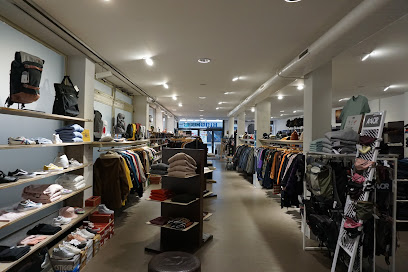
Martinshof City Shop
Experience the essence of Bremen's local flavors at Martinshof City Shop, your go-to grocery destination for fresh and organic products.
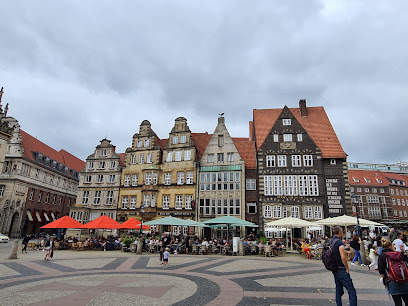
Augustapfel im Schnoor
Discover unique fabrics and handcrafted treasures at Augustapfel im Schnoor, Bremen's charming gift shop in the historic Schnoor district.
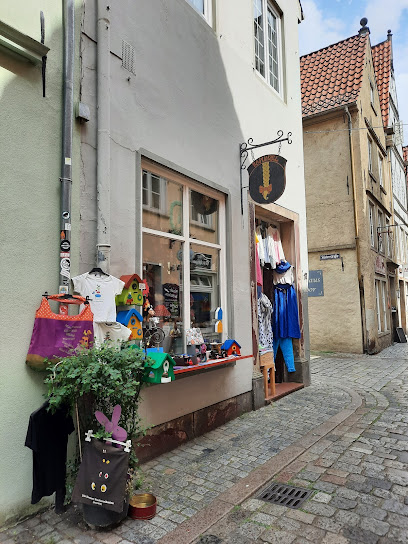
Wolford Boutique Bremen
Experience luxury shopping at Wolford Boutique Bremen, where fashion meets elegance in a charming atmosphere.
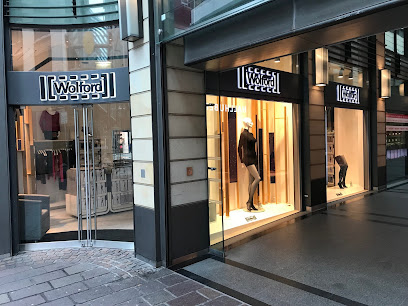
Essential bars & hidden hideouts
Red Rock
Experience the vibrant nightlife at Red Rock, a bustling pub in Bremen, where great drinks and unforgettable memories await.
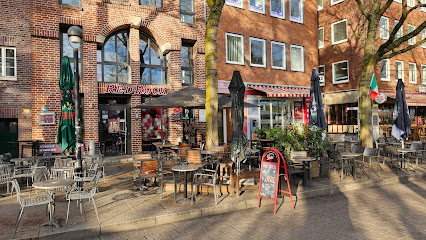
Little Mary's Irish Pub - Bremen
Discover the heart of Ireland in Bremen at Little Mary's Irish Pub – a lively venue for authentic food, drinks, and music.
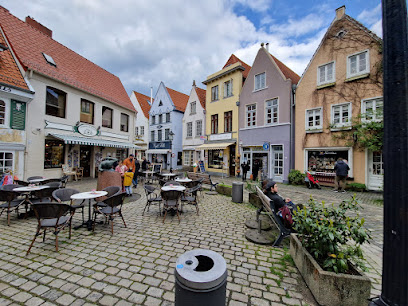
Spitzen Gebel - Bremen
Experience the vibrant atmosphere and local flavors at Spitzen Gebel, a top pub and restaurant in Bremen's Mitte district.
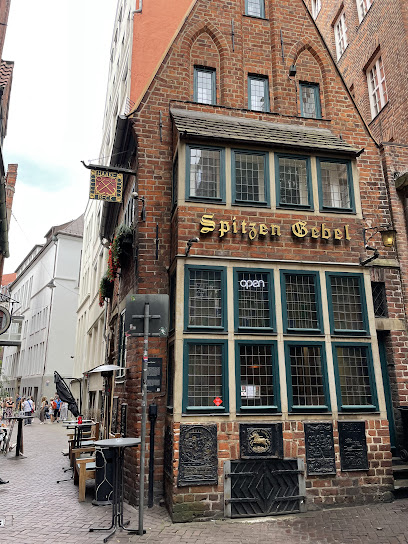
Blauer Fasan Bar Bremen
Discover the vibrant nightlife of Bremen at Blauer Fasan Bar, where expertly crafted cocktails meet a lively atmosphere in the heart of the city.
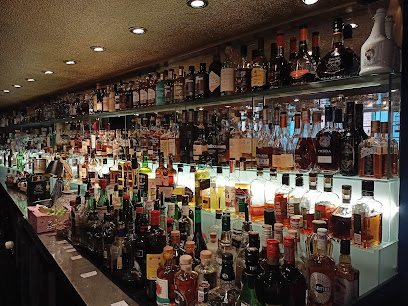
COTTONs Pub - Bremen
Discover the lively spirit of COTTONs Pub in Bremen, a vibrant bar offering a diverse drink menu and an inviting atmosphere for all.
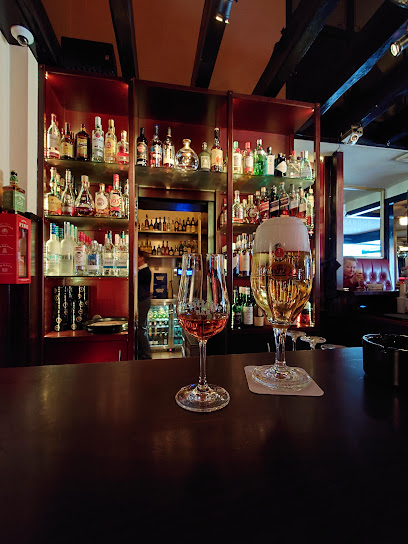
Brill No.6 - Bremen
Experience Bremen's vibrant nightlife at Brill No.6, where expertly crafted cocktails meet a lively atmosphere for unforgettable evenings.
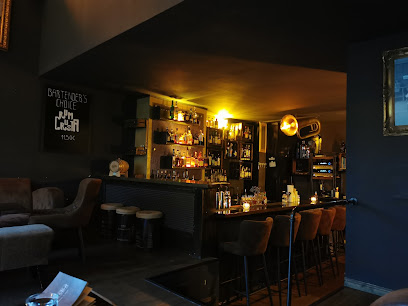
Grays Bar
Discover Grays Bar in Bremen: A lively destination for cocktails, local beers, and dart games in a charming atmosphere.
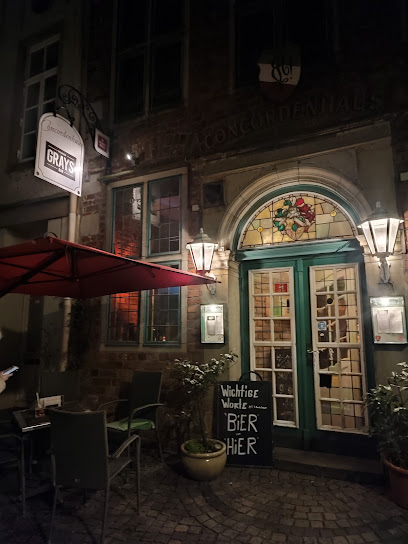
Katharinen-Theke
Discover the local charm of Bremen at Katharinen-Theke, a vibrant pub offering an extensive drink selection and a cozy atmosphere perfect for tourists.
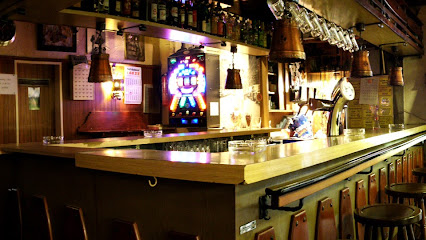
Lemon Garden - Cocktailbar Bremen
Experience the vibrant atmosphere and exquisite cocktails at Lemon Garden, Bremen's top cocktail bar and gastropub for an unforgettable night out.
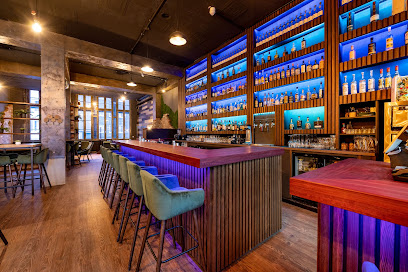
Schnoor Destille - Bremen
Experience authentic German spirits and a cozy atmosphere at Schnoor Destille, the heart of Bremen's historic bar scene.
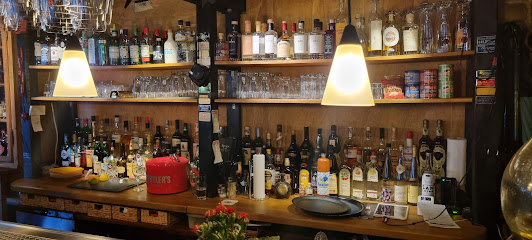
Local Phrases
-
- HelloHallo
[hah-loh] - GoodbyeAuf Wiedersehen
[owf vee-der-zay-en] - YesJa
[yah] - NoNein
[nine] - Please/You're welcomeBitte
[bih-tuh] - Thank youDanke
[dahn-kuh] - Excuse me/SorryEntschuldigung
[ent-shool-dee-goong] - How are you?Wie geht es Ihnen?
[vee gayt es een-en] - Fine. And you?Gut. Und Ihnen?
[goot oont een-en] - Do you speak English?Sprechen Sie Englisch?
[shprek-en zee eng-leesh] - I don't understandIch verstehe nicht
[ikh fer-shtay-uh nikht]
- HelloHallo
-
- I'd like to see the menu, pleaseIch hätte gerne die Speisekarte, bitte
[ikh ha-teh gehr-neh dee shp-eye-ze-kahr-teh, bih-tuh] - I don't eat meatIch esse kein Fleisch
[ikh es-seh kine flysh] - Cheers!Prost!
[prohst] - I would like to pay, pleaseIch würde gerne zahlen, bitte
[ikh vur-deh gehr-neh tsah-len, bih-tuh]
- I'd like to see the menu, pleaseIch hätte gerne die Speisekarte, bitte
-
- Help!Hilfe!
[hil-fuh] - Go away!Geh weg!
[geh vehg] - Call the Police!Rufen Sie die Polizei!
[roo-fen zee dee poh-lee-tsai] - Call a doctor!Rufen Sie einen Arzt!
[roo-fen zee i-nen artsht] - I'm lostIch habe mich verirrt
[ikh hah-beh meekh feh-rihrt] - I'm illIch bin krank
[ikh been krank]
- Help!Hilfe!
-
- I'd like to buy...Ich möchte kaufen...
[ikh muhs-teh kow-fen] - I'm just lookingIch schaue nur
[ikh show-eh noor] - How much is it?Wie viel kostet es?
[vee feel koh-stet es] - That's too expensiveDas ist zu teuer
[dahs ist tsoo toy-er] - Can you lower the price?Können Sie den Preis senken?
[kew-nen zee den prise zehn-ken]
- I'd like to buy...Ich möchte kaufen...
-
- What time is it?Wie spät ist es?
[vee shpayt ist es] - It's one o'clockEs ist ein Uhr
[es ist iyn oor] - Half past (10)Halb zehn
[halb tsayn] - MorningMorgen
[mohr-gen] - AfternoonNachmittag
[nahkh-mit-tahk] - EveningAbend
[ah-bent] - YesterdayGestern
[geh-shtern] - TodayHeute
[hoi-teh] - TomorrowMorgen
[mohr-gen] - 1Eins
[ines] - 2Zwei
[tsvai] - 3Drei
[dry] - 4Vier
[feer] - 5Fünf
[foonf] - 6Sechs
[zeks] - 7Sieben
[zee-ben] - 8Acht
[ahkt] - 9Neun
[noyn] - 10Zehn
[tsayn]
- What time is it?Wie spät ist es?
-
- Where's a/the...?Wo ist ein/der...
[voh ist iyn/dehr] - What's the address?Was ist die Adresse?
[vahs ist dee ah-dreh-suh] - Can you show me (on the map)?Können Sie mir zeigen (auf der Karte)?
[kew-nen zee meer tsay-gen (owf dehr kahr-teh)] - When's the next (bus)?Wann kommt der nächste (Bus)?
[vahn kohmt dehr nekh-steh (boos)] - A ticket (to ....)Eine Fahrkarte (nach ....)
[i-ne fahr-kahr-teh (nahkh ....)]
- Where's a/the...?Wo ist ein/der...
History of Altstadt
-
The Altstadt (Old Town) of Bremen dates back to the 9th century, when it was founded as a trading settlement along the Weser River. Its strategic location led to its incorporation into the Hanseatic League in the 13th century, a powerful economic alliance that enabled Bremen to flourish as a major trading hub in Northern Europe.
-
In 1404, the Bremen Town Hall was constructed, showcasing the city's wealth and power during the height of the Hanseatic League. Accompanying it is the Roland Statue, erected in 1404 as a symbol of the city's independence and rights. Both structures are UNESCO World Heritage Sites and stand as iconic representations of Bremen's historical significance.
-
The 16th century brought the Protestant Reformation to Bremen, significantly altering its religious landscape. The city's conversion to Lutheranism led to the establishment of new churches, such as St. Peter's Cathedral, which became a focal point of the city's spiritual and cultural life during this transformative period.
-
The 19th century marked a period of rapid industrialization for Bremen, with the establishment of various industries, including shipbuilding and manufacturing. This growth led to an expansion of the Altstadt, as new neighborhoods arose to accommodate the increasing population and economic activities.
-
Bremen's Altstadt suffered significant damage during World War II, with many historical buildings destroyed. Post-war reconstruction efforts focused on restoring the architectural heritage of the area, leading to a revival of its historical charm and the preservation of its cultural identity.
-
In recent decades, Bremen's Altstadt has undergone revitalization, with a focus on tourism and cultural initiatives. The area hosts numerous festivals, markets, and events that celebrate its rich heritage, making it a vibrant center for both locals and visitors seeking to experience the history and culture of this iconic German city.
Altstadt Essentials
-
Altstadt is easily accessible from other neighborhoods in Bremen. If you're arriving by train, the main station (Bremen Hauptbahnhof) is just a short walk or tram ride away. From the station, you can take tram line 1 or 8 towards the city center. For those coming from Bremen Airport, take tram line 6 to the main station and then connect to a tram or walk to Altstadt. Buses also connect various neighborhoods to Altstadt, with several stops near key attractions.
-
Altstadt is a compact neighborhood, making it ideal for exploration on foot. Most attractions are within walking distance. Public transport options include trams and buses, which are well-connected and efficient. For a unique experience, consider renting a bicycle from one of the many local bike rental shops. This allows you to explore the scenic routes along the Weser River. Additionally, taxis and rideshare services are available for those preferring a quicker mode of transport.
-
Altstadt is generally safe for tourists, but it's wise to remain vigilant. Petty crime, such as pickpocketing, can occur in crowded areas, especially near popular tourist sites like the Roland Statue and the UNESCO World Heritage Town Hall. It’s advisable to avoid the less populated streets at night and to keep an eye on your belongings at all times. While there are no specific high-crime areas, exercising caution is always prudent.
-
In case of emergencies, dial 112 for police, fire, or medical assistance. The local hospitals are equipped to handle various medical needs. It’s advisable to have travel insurance that covers emergencies. For minor health issues, pharmacies are widely available throughout Altstadt, often with English-speaking staff. Familiarize yourself with the location of the nearest hospital or clinic upon arrival.
-
Fashion: Do dress modestly when visiting religious sites such as St. Peter's Cathedral. Don’t wear overly casual or revealing clothing. Religion: Do respect local customs; it’s polite to speak softly in places of worship. Don’t take photos where prohibited. Public Transport: Do give up your seat for the elderly. Don’t eat or drink on trams and buses. Greetings: Do greet locals with a friendly 'Hallo' or 'Guten Tag.' Don’t initiate conversations in loud tones. Eating & Drinking: Do try local specialties like Bremer Klaben and enjoy a local beer. Don’t waste food or refuse offers of hospitality.
-
To experience Altstadt like a local, explore the lesser-known alleys and visit the hidden courtyards. Try to catch a local farmers' market if you're there on a Saturday morning and sample regional products. Join a guided walking tour to learn about the rich history of the neighborhood. For an authentic dining experience, choose a traditional Bremen restaurant over tourist traps; locals often frequent places like Bremer Ratskeller for genuine regional cuisine. Lastly, don’t miss out on the vibrant arts scene; check local listings for gallery openings and performances.
Nearby Cities to Altstadt
-
Things To Do in Hamburg
-
Things To Do in Hannover
-
Things To Do in Munster
-
Things To Do in Groningen
-
Things To Do in Lubeck
-
Things To Do in Zwolle
-
Things To Do in Sønderborg
-
Things To Do in Essen
-
Things To Do in Arnhem
-
Things To Do in Nijmegen
-
Things To Do in Rostock
-
Things To Do in Dusseldorf
-
Things To Do in Ribe
-
Things To Do in Amersfoort
-
Things To Do in Esbjerg









